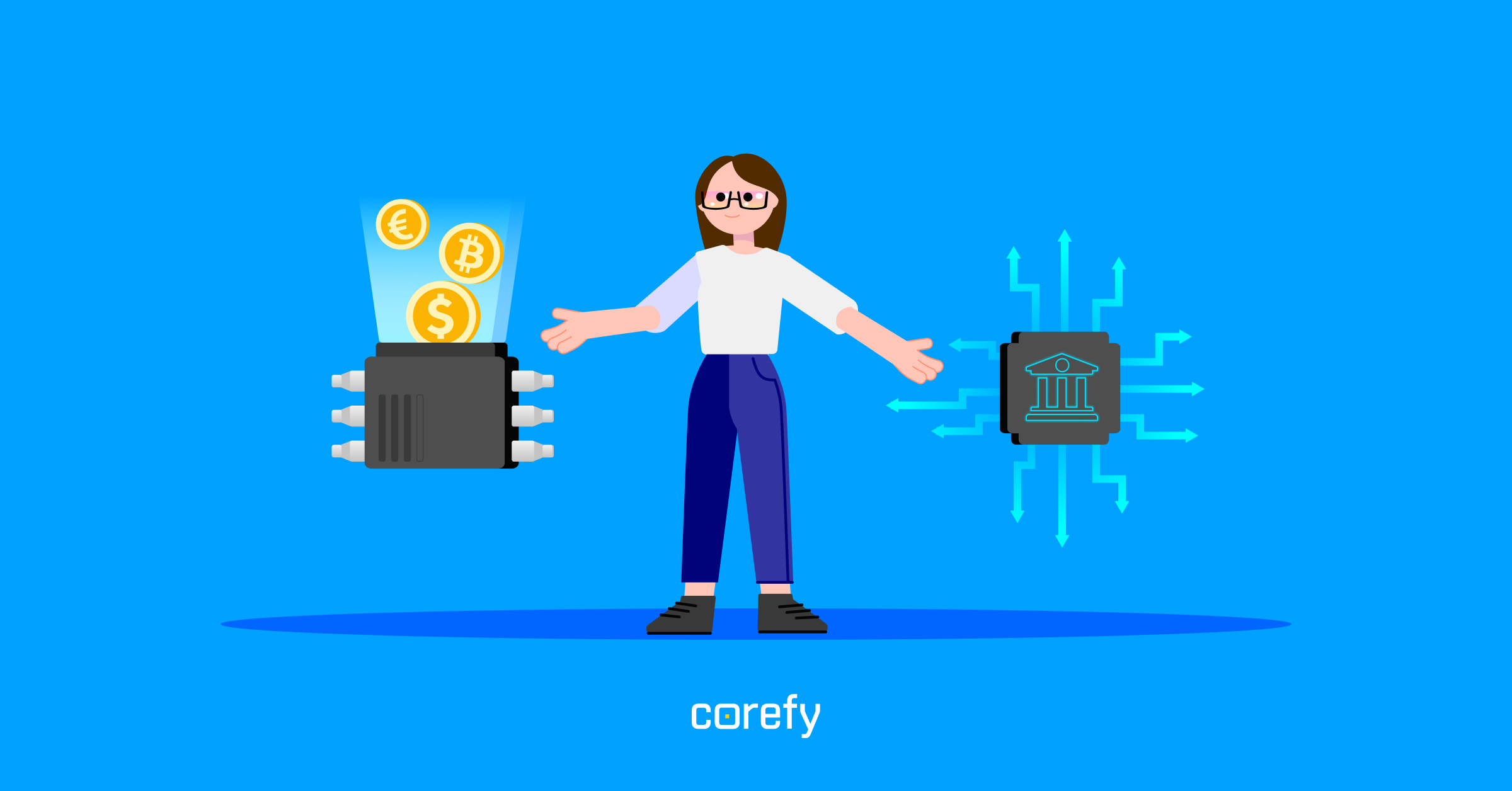Payment gateway vs payment processor: what's the difference?


Are you twisted up in knotty payment terms and their definitions? You’re not alone. As a merchant, you’ve probably stumbled upon terms like “payment gateway” and “payment processor”. Although many people mistakenly believe that these two concepts are identical, they perform different tasks in payment processing.
This article aims to provide you with exhaustive information about a payment processor and payment gateway, as well as clarify the differences between them. Let’s get down to business.
Small comparison: Buyers usually make payments with a physical debit/credit card via a POS terminal in a regular brick-and-mortar store. But in online card-not-present transactions, the role of the POS terminal is played by a payment gateway.
Simply put, the payment gateway communicates between all participants in payment processing. Its operation is always accompanied by a set of security measures aimed at protecting sensitive customer data from breaches and payment fraud. Among them are encryption, card tokenisation, TLS (SSL) protocol, and others.
Payment gateways differ in the type of integration: there are hosted, self-hosted, and API-hosted payment gateways.
When customers click the “Buy” button on your site, they are redirected to a checkout page to select a payment method. In the case of a card-involving payment method, the customer enters their credit card details. Then a payment gateway comes into operation, encrypting the information and sending it to a payment processor. If the acquirer and issuer approve the transaction, the payment gateway informs the customer about the successful payment.
The payment gateway creates a secure online payment processing environment, making online transactions safe for customers and merchants. But many business owners are wondering: Do I need to connect a payment gateway or a payment processor? We answer this question below.
The actual payment processing begins when the encrypted customers’ data is made available to the payment processor. What's its role here?
Essentially, the payment processor receives customers’ card data from a payment gateway and relays it between the other parties involved in the transaction. However, its functionality isn’t limited to this. The payment processor executes the transaction, ensuring smooth processing from the moment a customer initiates a payment to the moment funds are credited to the merchant’s bank account. Plus, they may provide value-added services such as:
Very often, a payment processor offers its own payment gateway to merchants, making it easier to set up a payment processing solution.
Take a look at a small comparison table to organise the information we’ve learned:
| Payment gateway | Payment Processor |
|---|---|
| Software | Organisation |
| Encrypts customers’ card data | Routes the encrypted data between a customer, issuing bank, acquiring bank, and merchant |
| Authenticates the transaction | Authorises the transaction |
| Sends data to a payment processor | Sends data to financial institutions and then back to a payment gateway |
| Notifies the customer about a transaction result |
While quite different, the payment processor and gateway are essential components of a secure online payment system. As a merchant who wants to accept any type of digital payment, you cannot go without payment gateway and third-party payment processor integration.
Here comes the question: Do you need a payment gateway, or will it be enough to connect a payment processor to set everything up? We have the answer: you’ll need a payment processor and gateway both.
A payment gateway is a tool that encrypts sensitive payment details at the beginning of the transaction lifecycle and transmits it to the payment processor, which executes the transaction, moving payment details between all processing participants.
Thus, payment gateways and payment processors work closely together to process customers’ credit card payments, ensuring their smooth and secure flow from start to finish.
By understanding the difference between payment processing parties, as well as analysing the available solutions you’ll be able to find a great combo that fits your business needs. Read on to learn how to choose a third-party payment gateway and processor.
Regardless of your business type, a payment processor and payment gateway are your only ways to accept payments conveniently and securely. However, choosing the right payment service provider will require a deep analysis of your business needs and expectations. For example, if you sell goods online, you’ll need a payment processor that supports a range of alternative payment options in addition to bank cards.
With so many payment gateway providers and payment processors on the market, it may be hard to make up your mind on the most suitable solution.
This little checklist will help you be more productive while searching for a payment service provider:
By going through this checklist, you will probably filter out most of the providers you know. Most providers lack localisation and may fail to support crucial local payment methods on your key markets. In cases like that, the best solution is to work with multiple providers. By doing so, you can easily adapt to any country, transaction volume, and currency. Thus, you’ll be able to reach more customers while significantly reducing payment processing costs.
Don’t rush to work with the first payment gateway and payment processor you encounter. By taking your time and researching the market, you can find a true gem that will not only satisfy your current needs but also allow you to scale. Following the strictest industry standards, we at Corefy empower our clients to accept payments in dozens of methods across multiple payment providers.
Book a demo with us to learn more about how we can facilitate your growth.